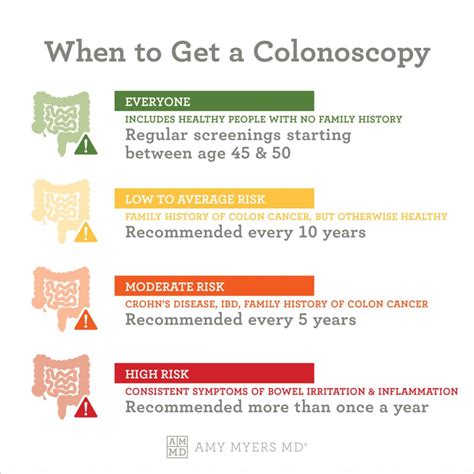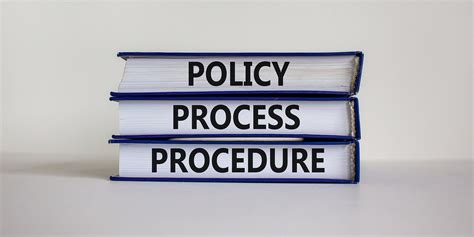Intro
Discover 5 essential colonoscopy tips for a smooth prep and procedure, including colon health, bowel prep, and post-procedure care, to ensure a successful colon cancer screening and maintain a healthy colon.
Colonoscopy is a crucial medical procedure that helps detect colon cancer, polyps, and other gastrointestinal issues in their early stages. Despite its importance, many people dread the thought of undergoing a colonoscopy due to misconceptions or fear of the unknown. However, with the right mindset and preparation, the process can be relatively smooth and stress-free. In this article, we will delve into the world of colonoscopy, exploring its significance, benefits, and providing valuable tips to make the experience more comfortable and effective.
As we navigate the complexities of modern healthcare, it's essential to prioritize preventive measures, and colonoscopy is a vital tool in this endeavor. By understanding the procedure and its benefits, individuals can take proactive steps towards maintaining their digestive health and reducing the risk of colon cancer. The American Cancer Society estimates that over 100,000 new cases of colon cancer are diagnosed each year, highlighting the need for regular screenings and early detection. With the right approach, colonoscopy can be a lifesaving procedure, and it's essential to separate fact from fiction to ensure a positive experience.
The journey to a successful colonoscopy begins with education and awareness. By learning about the procedure, its benefits, and what to expect, individuals can alleviate anxiety and feel more in control. This knowledge will empower patients to ask informed questions, follow instructions accurately, and make the most of their colonoscopy experience. Whether you're a first-time patient or a seasoned veteran, understanding the intricacies of colonoscopy is crucial for a stress-free and effective procedure.
Understanding Colonoscopy

Benefits of Colonoscopy
The benefits of colonoscopy are numerous, and the procedure has been proven to save lives. Some of the most significant advantages of colonoscopy include: * Early detection and removal of polyps, which can reduce the risk of colon cancer * Identification of cancerous growths, allowing for prompt treatment and improved prognosis * Detection of other gastrointestinal issues, such as diverticulitis, inflammatory bowel disease, and gastrointestinal bleeding * Relief from symptoms such as abdominal pain, bloating, and changes in bowel habitsPreparation is Key

Tips for a Comfortable Colonoscopy
To make the colonoscopy experience more comfortable and stress-free, consider the following tips: * Arrive early: Plan to arrive at least an hour before the scheduled procedure to complete any necessary paperwork and preparations. * Bring a support person: Having a friend or family member present can provide emotional support and help alleviate anxiety. * Ask questions: Don't be afraid to ask your doctor or nurse about the procedure, what to expect, and any concerns you may have. * Breathe deeply: Take slow, deep breaths to relax and calm your nerves during the procedure. * Follow instructions: Adhere to the pre-procedure instructions and post-procedure care to ensure a smooth recovery.What to Expect During the Procedure

After the Procedure
After the colonoscopy, patients will be taken to a recovery area where they will be monitored for any adverse reactions or complications. It's essential to follow the post-procedure instructions, which may include: * Avoiding heavy lifting or strenuous activities for 24 hours * Avoiding driving or operating heavy machinery for 24 hours * Eating a light meal or snack to help the body recover * Drinking plenty of fluids to replenish electrolytes and prevent dehydration5 Colonoscopy Tips

Common Mistakes to Avoid
To ensure a successful colonoscopy, it's essential to avoid common mistakes, such as: * Not following the pre-procedure instructions * Eating solid foods or dairy products before the procedure * Not bringing a support person * Not asking questions or expressing concerns * Not following post-procedure instructionsConclusion and Next Steps

We invite you to share your thoughts and experiences with colonoscopy in the comments below. Have you undergone a colonoscopy? What were your experiences like? Do you have any tips or advice for others? Share your story and help others feel more comfortable and informed about this vital medical procedure.
What is the purpose of a colonoscopy?
+A colonoscopy is a medical procedure used to detect colon cancer, polyps, and other gastrointestinal issues in their early stages.
How long does a colonoscopy take?
+A colonoscopy typically takes 30-60 minutes to complete, depending on the individual and the complexity of the procedure.
What are the benefits of colonoscopy?
+The benefits of colonoscopy include early detection and removal of polyps, identification of cancerous growths, and detection of other gastrointestinal issues.
How do I prepare for a colonoscopy?
+To prepare for a colonoscopy, patients are typically required to follow a clear liquid diet for 24 hours before the procedure and take laxatives or other medications to cleanse the bowel.
What happens after a colonoscopy?
+After a colonoscopy, patients will be taken to a recovery area where they will be monitored for any adverse reactions or complications, and will be given instructions on how to recover and follow up with their doctor.
